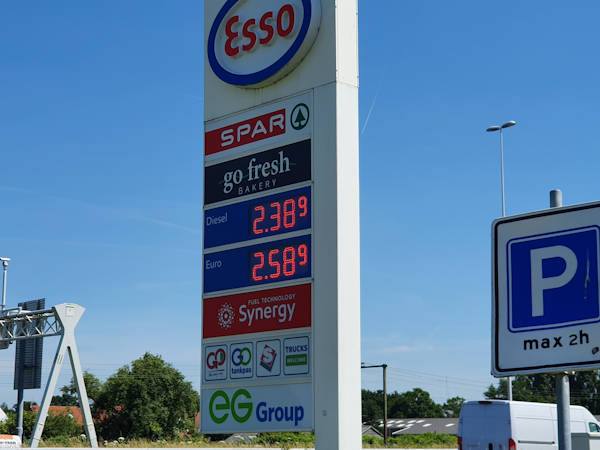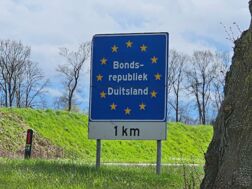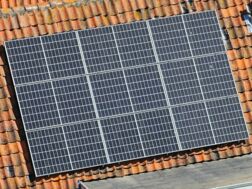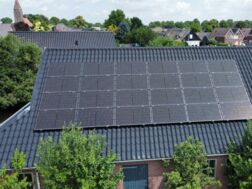Dutch car owners are in for a shock as fuel prices rise in January 2024: A trip to the petrol station will become more expensive for many Dutch people from January 2024 onwards. Car owners will feel the impact of an excise duty increase, with an expected increase of almost 21 cents per litre of petrol. This means a 45-litre tank will cost almost ten euros more than it does now. Diesel drivers are also not spared, as the price per litre of diesel is expected to rise by about 13.5 cents, resulting in almost six euros extra for a full tank.
From answers to parliamentary questions, these price increases appear to be coming. Although it was already known that prices would rise due to the reversal of excise duty reductions, the specific details have been unknown until now. Parliamentary questions posed by Pieter Omtzigt, a member of the House of Representatives, have now been answered by Deputy Secretary Marnix van Rij, providing more clarity on the planned changes.
The reasons for these changes are multiple. Firstly, there's a planned increase in excise duties, with an 8.7 cent increase for petrol and a 5.6 cent increase for diesel. This is related to previous reductions being reversed. In addition, there are inflation-related adjustments that also contribute to the rise in excise duties.
However, while the expected increases are a concern for some, there is still a possibility that these changes will not be fully implemented. The interim government still has the option to reconsider its policy and cancel the price hikes. This decision can be made when considering the Tax Plan 2024 in the House of Representatives or when drafting the budget for the coming year.
The debate over fuel prices and excise duty increases remains a sensitive issue in the Netherlands, especially during economic uncertainty and high inflation. It remains to be seen how this issue will develop and which decisions will ultimately be made.
Fueling in Germany
Thomas Klimeck, a cross-border business consultant and editor-in-chief of this online platform, emphasises that fuel prices in Germany fluctuate throughout the day. Often, they are higher in the morning and drop towards the afternoon and evening. It is therefore advisable to check current fuel prices on sites such as clever-tanken.de. With an average tank capacity of 50 litres, a motorist in the Netherlands would pay up to €20 more per refuelling than Belgium and Germany due to higher excise duties. This price difference can cause significant border effects.
Furthermore, Klimeck points out that many products, besides fuel, are cheaper in Germany. A trip to our eastern neighbours can save considerably for people wanting to do grocery shopping or visit a drugstore. With the attractive prices for both fuel and groceries, it's an ideal time to consider a day trip across the border: refuel affordably, shop for less, and experience a day in a different landscape. However, be mindful of the travel time; a trip from Utrecht to Emmerich or Kleve can take up to one and a half hours.
Germany increases CO₂ levy in 2024: Implications for fuel prices and car costs
While there's a global emphasis on sustainability and limiting CO₂ emissions, Germany has announced it will increase the CO₂ levy in 2024. This measure is part of a broader climate policy and directly affects motorists in Germany. The price per emitted ton of CO₂ will be raised to €35 at the beginning of 2024, increasing by about 1.5 cents per litre of petrol or diesel. However, some sources suggest this rise could be as much as 5 cents per litre in extreme cases.
One of the sectors directly affected is the automotive industry. Owners of cars with higher CO₂ emissions will feel the financial consequences. This includes SUVs and sports cars emitting more than 116 grams of CO₂ per kilometre. Such cars have been subject to higher vehicle tax (Kfz-Steuer) in Germany since 2021, encouraging car owners to purchase more environmentally friendly vehicles.
The CO₂ prices were initially introduced in 2021 at a rate of €25 per ton, raising the price of petrol and diesel by 7 and 8 cents, respectively. These prices will increase, with an expected price of €55 in 2026.
The increased CO₂ levy is part of a broader strategy to reduce greenhouse gas emissions and achieve climate targets. By making the burning of fossil fuels more expensive, the government aims to encourage citizens and businesses to seek cleaner alternatives, such as electric vehicles or sustainable energy sources for heating.
Further consequences for the German consumer
In addition to fuel prices, heating with heating oil and natural gas might also rise due to the CO₂ levy. These measures are part of a broader policy to reduce the use of fossil fuels and thus contribute to achieving Germany's climate targets.
Future steps in Germany
According to German government sources, there are plans to increase the CO₂ price to between 55 and 65 euros per ton in 2026. This will result in even higher fuel and energy costs for German consumers. However, these plans can be adjusted depending on the economic situation and other factors, such as international energy prices.
With these changes, it's more crucial than ever for consumers to be aware of their energy consumption and, where possible, to choose more sustainable options. These steps are vital for the future of our planet. While individual countries like Germany are leading the way in these initiatives, a global effort is needed to limit the effects of climate change.





